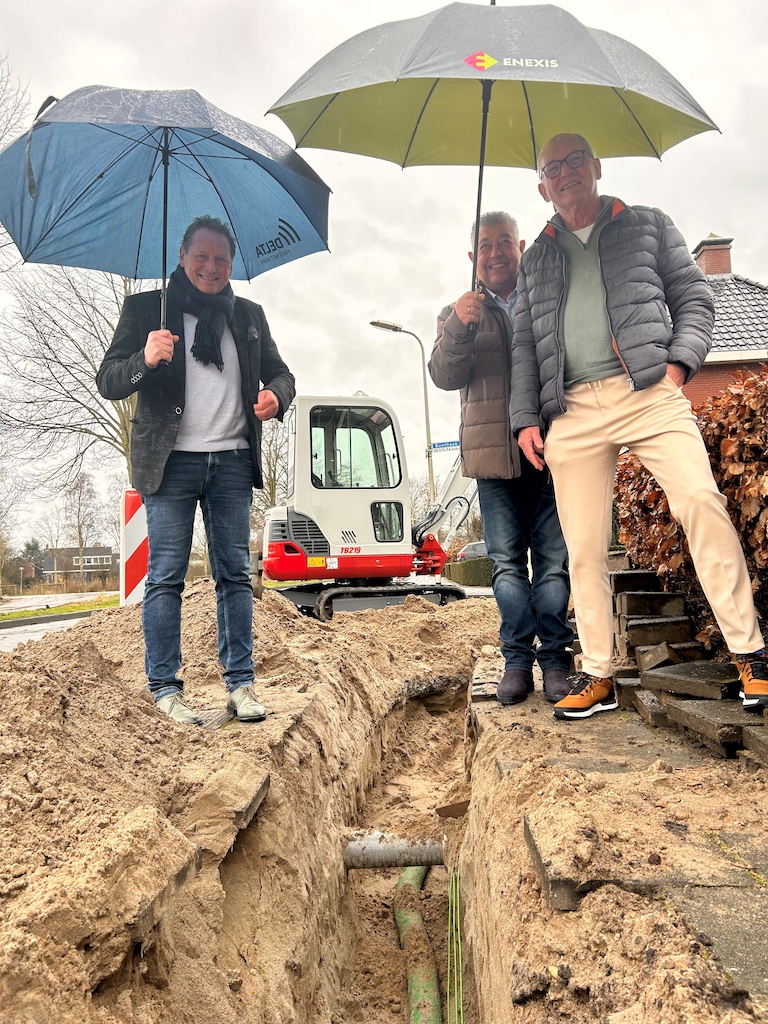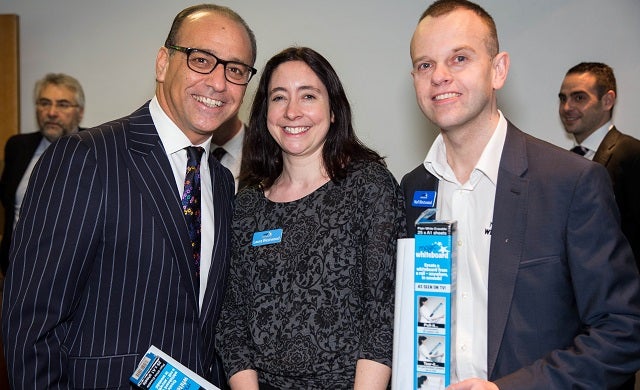Is Age Just A Number? Redefining Age And Its Impact

Table of Contents
Societal Perceptions of Age and Ageism
The Shifting Sands of Age
Societal views on aging have dramatically shifted throughout history and vary significantly across cultures. What was once considered the twilight of life, marked by decline and irrelevance, is increasingly viewed as a period of continued growth, contribution, and fulfillment. However, ageism, the stereotyping and discrimination against individuals based on their age, remains a pervasive issue.
- Ageism in the Workplace: Many older adults face age discrimination in hiring, promotions, and even subtle biases in performance evaluations. This often translates to forced early retirement or a lack of opportunities for professional development.
- Ageism in Healthcare: Older adults can experience ageist attitudes from healthcare providers, leading to inadequate care or assumptions about their capabilities. This can manifest as dismissal of their symptoms or a lack of proactive healthcare planning.
- Ageism in Media: Media often portrays older adults in stereotypical roles, reinforcing negative stereotypes and limiting diverse representations of aging. Positive portrayals that emphasize vitality, wisdom, and continued contribution are crucial to combat this.
- Positive Shifts Towards Age Inclusivity: There’s a growing movement towards age inclusivity, advocating for policies and practices that value the contributions of people of all ages. Intergenerational programs are increasingly recognized for their mutual benefits.
- Intergenerational Connections and their Benefits: Connecting people of different ages fosters mutual understanding, reduces ageist stereotypes, and enriches the lives of both younger and older generations. Mentorship programs, intergenerational volunteering, and shared community activities exemplify this positive trend.
Combating Ageism
Challenging ageist attitudes requires a multi-pronged approach involving individual actions, policy changes, and media representation.
- Advocacy Groups: Organizations dedicated to fighting ageism are crucial in raising awareness and advocating for policy changes that protect older adults from discrimination.
- Media Representation: Promoting positive and diverse portrayals of aging in media is essential to counteract negative stereotypes. Showcasing older adults in active, engaged roles helps shape more inclusive perspectives.
- Personal Actions to Combat Ageism: We can all play a part by actively challenging ageist jokes, assumptions, and discriminatory practices. Speaking out against ageism, both publicly and privately, is crucial.
Biological Aspects of Aging
The Science of Aging
Biological aging involves a complex interplay of cellular processes, genetic factors, and environmental influences.
- Cellular Senescence: As we age, our cells lose their ability to divide and repair themselves efficiently, contributing to tissue damage and organ decline.
- Telomere Shortening: Telomeres, protective caps on our chromosomes, shorten with each cell division. Shorter telomeres are associated with increased cellular aging and disease risk.
- Genetic Factors: Our genes play a significant role in determining our lifespan and susceptibility to age-related diseases. However, genetic predispositions are not destiny.
- Lifestyle Factors that Influence Aging: Diet, regular exercise, stress management, and avoidance of smoking significantly impact the aging process. Adopting a healthy lifestyle can slow down the effects of aging.
- Advancements in Anti-aging Research: Ongoing research into the biology of aging holds promise for developing interventions that extend lifespan and healthspan.
Healthy Aging
Maintaining physical and mental health throughout life is key to aging well.
- Regular Exercise: Regular physical activity enhances cardiovascular health, maintains muscle mass, improves cognitive function, and boosts mood.
- Balanced Nutrition: A diet rich in fruits, vegetables, whole grains, and lean protein supports cellular repair and reduces the risk of chronic diseases.
- Cognitive Stimulation: Engaging in mentally stimulating activities like puzzles, learning new skills, and socializing helps preserve cognitive function and prevent cognitive decline.
- Preventative Healthcare: Regular check-ups and screenings for age-related diseases are essential for early detection and treatment.
Psychological Perspectives on Age
Age and Identity
Age significantly shapes our personal identity and self-perception, influencing our sense of self and place in the world.
- Stages of Life: Different life stages are associated with unique challenges and opportunities, shaping our identity and values.
- Life Transitions: Major life transitions, such as retirement, parenthood, or widowhood, can significantly impact our sense of self and require adaptation.
- Identity Crises and their Resolution: Navigating identity crises at different ages is a normal part of life and can lead to personal growth and a stronger sense of self.
Mental Well-being Across the Lifespan
Maintaining mental well-being is crucial at all ages.
- Addressing Depression and Anxiety in Older Adults: Depression and anxiety are prevalent among older adults but are often underdiagnosed and undertreated. Early intervention is crucial.
- Cognitive Decline Prevention: Engaging in cognitive stimulation, maintaining social connections, and managing health conditions can help prevent cognitive decline.
- Social Engagement and its Impact: Maintaining strong social connections is essential for mental well-being at all ages, reducing feelings of isolation and loneliness.
The Impact of Age on Various Life Aspects
Age and Work
The workplace needs to adapt to the realities of an aging workforce.
- Age Discrimination: Combating age discrimination is crucial to ensure that older workers have equal opportunities.
- Skills Retraining: Providing opportunities for skills retraining and professional development helps older workers adapt to changing job markets.
- Flexible Work Arrangements: Offering flexible work arrangements can allow older workers to continue contributing while balancing other life commitments.
Age and Relationships
Relationships evolve throughout life, requiring adaptation and understanding.
- Family Dynamics: Family relationships change as children grow up and leave home, and parents age. Maintaining healthy family connections is important.
- Romantic Relationships: Romantic relationships evolve over time, requiring communication, adaptation, and shared goals.
- Social Connections: Maintaining strong social connections is essential for well-being at all ages, providing support, companionship, and a sense of belonging.
Age and Financial Planning
Financial planning is crucial throughout life, adapting to changing needs and circumstances.
- Retirement Planning: Adequate retirement planning is crucial to ensure financial security in later life.
- Healthcare Costs: Planning for healthcare costs is essential, as medical expenses can be significant in later life.
- Estate Planning: Estate planning ensures that assets are distributed according to one's wishes.
Conclusion
The question, "Is age just a number?" is far more complex than it initially seems. While biological aging is an undeniable process, its impact is profoundly shaped by societal perceptions, individual choices, and proactive strategies for maintaining health and well-being. We've explored how age influences our identity, relationships, work, and financial planning, emphasizing the need for a paradigm shift away from ageist attitudes and towards age-positive narratives. Redefining age means embracing the opportunities and challenges of each life stage, fostering inclusivity, and promoting healthy aging for all. Let's work together to redefine age and its impact, creating a society where age is celebrated, not feared. Start by challenging your own perceptions of age and promoting age-positive narratives in your life. Learn more about healthy aging and combating ageism at [link to relevant resource].

Featured Posts
-
 Enexis En Gemeente Kampen In Juridisch Conflict Stroomnet Aansluiting Centraal
May 01, 2025
Enexis En Gemeente Kampen In Juridisch Conflict Stroomnet Aansluiting Centraal
May 01, 2025 -
 Tabung Baitulmal Sarawak Rm 36 45 Juta Disalurkan Kepada Asnaf Sehingga Mac 2025
May 01, 2025
Tabung Baitulmal Sarawak Rm 36 45 Juta Disalurkan Kepada Asnaf Sehingga Mac 2025
May 01, 2025 -
 Extra Inning Magic Guardians Beat Royals In Season Opener
May 01, 2025
Extra Inning Magic Guardians Beat Royals In Season Opener
May 01, 2025 -
 Dzien Zwierzat Bezdomnych 4 Kwietnia Solidarnosc Z Bezdomnymi Zwierzetami
May 01, 2025
Dzien Zwierzat Bezdomnych 4 Kwietnia Solidarnosc Z Bezdomnymi Zwierzetami
May 01, 2025 -
 Ripples 15 000 Growth A Realistic Look At Xrps Potential
May 01, 2025
Ripples 15 000 Growth A Realistic Look At Xrps Potential
May 01, 2025
Latest Posts
-
 Plant Based Dog Food Brand Omni Receives Dragons Den Backing
May 01, 2025
Plant Based Dog Food Brand Omni Receives Dragons Den Backing
May 01, 2025 -
 New Partnership Announced For Prince William And Kates Initiative
May 01, 2025
New Partnership Announced For Prince William And Kates Initiative
May 01, 2025 -
 Little Coffee A Dragons Den Success Story Four Investment Offers
May 01, 2025
Little Coffee A Dragons Den Success Story Four Investment Offers
May 01, 2025 -
 Analyzing The Target Boycott The Relationship Between Dei Initiatives And Consumer Loyalty
May 01, 2025
Analyzing The Target Boycott The Relationship Between Dei Initiatives And Consumer Loyalty
May 01, 2025 -
 Dragons Den Invests In Omnis Plant Based Dog Food Brand
May 01, 2025
Dragons Den Invests In Omnis Plant Based Dog Food Brand
May 01, 2025
